SCS Blog Author Page
Posts by Sarah Bond

|
Blog: Come and Take It: The End of Eidolon
Late in the afternoon on November 5, 2020 — close to 24 hours after polls across the country had closed for the 2020 elections — the NRA tweeted a familiar phrase: “Come and Take It.”
In May of 2018, I wrote about the valorization of ancient Sparta for Eidolon. The article underscored Spartan culture as a romantic figment of the far right imagination within America. The growth in the use of Plutarch’s alleged quote of the Spartan king Leonidas, whom the Greek historian says answered back ‘μολὼν λαβέ Read more … |

|
Blog: What Are the Best Classics Books for Children?
Finishing my third trimester in the midst of a pandemic was not what I had planned for the last months of pregnancy. Since the Ides of March, we have sequestered ourselves in our house in Iowa City and cancelled any and all social gatherings––including the planned baby shower––as has almost everyone else across the globe. Although I lamented not being able to celebrate with family and friends in person, every day it seemed, small book-shaped cardboard boxes began to populate the front stoop. Their opening revealed that our academic friends had sent us their favorite books in hopes that reading to our little one might bring comfort, amusement, and maybe a little sleep into our lives. As her library began to grow with the reading selections of our fellow classicists, archaeologists, and university librarians, the broad selection of children’s books focused on the ancient Read more … |
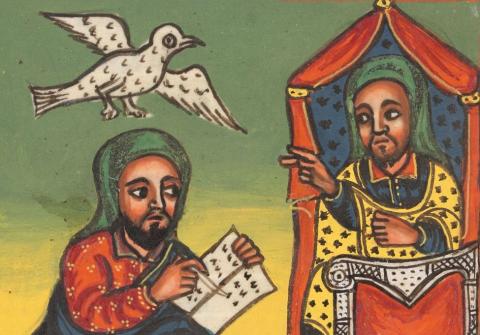
|
Blog: Working Together to Transcribe Ancient Documents During COVID-19
As the pandemic known as COVID-19 grips the globe, thousands of instructors in the United States and elsewhere have been asked to transition their courses online for the remainder of the semester. To some instructors, such as the superb Classics professors at the Open Read more … |
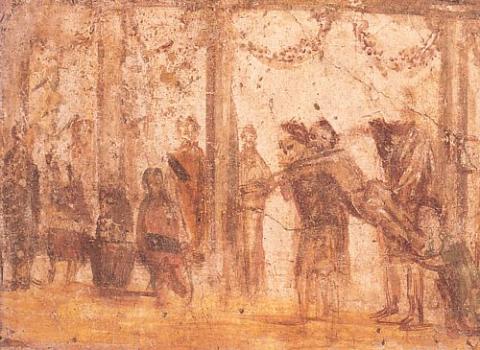
|
Blog: How to Kill a Canon: Sourcebooks that Address the Silence
In November of 1897, a review of an English poetry collection titled The Flower of the Mind was published in literary journal The Academy. In his review of Alice Meynell’s anthology of the great English poems, publisher Grant Richards ruminated on the difficulties, worth, and effects of anthologies as a genre: Anthologies, these latter years, come thick as Vallombrosa…For the making of an anthology is not merely the prettiest of literary amusements, it is also a delicate and fine mode of criticism. To select is to judge; tacitly, but no less deliberately. Admission or exclusion becomes the last word of a patient investigation, in the course of which, tests for genius are devised, and many an established reputation fails to sustain the ordeal. A history of anthologies would be a curious chronicle of the slow but inevitable determination of greatness. The Read more … |

|
Blog: Inscribed Memory, the Holocaust, and the Jewish Population of Rome
Romans across the city this week remembered the anniversary of the rastrellamento within the Jewish ghetto in Rome on October 16, 1943 carried out by 365 Nazi officers at the order of SS Captain Theodor Dannecker. Italians often refer to it as 'la spietata caccia agli ebrei' (“the ruthless hunting down of the Jews”). During the raid, 1,022 Jewish Romans were gathered and sent to the Collegio Militare in Palazzo Salviati in Trastevere, just a few hundred meters from Vatican city and the papal residence. Most of these Romans were sent to Auschwitz on sealed trains that left from Tiburtina station. Most would die in the gas chambers there. Only 15 men and 1 woman survived the camps and returned back to Italy alive.
|

|
Blog: Addressing the Divide Between Archaeology and Classics
'Addressing the Divide' is a new series of columns that looks at the ways in which the modern field of Classics was constructed and then explores ways to identify, modify, or simply abolish the lines between fields in order to embrace broader ideas of what Classics was, is, and could be. This month, we look at the divide between classical archaeology and philology by speaking with archaeologists Sheira Cohen, Eric Kansa, Kristina Killgrove, James Newhard, and Alison Rittershaus. Every January the Society for Classical Studies holds an annual meeting in conjunction with the Read more … |

|
Blog: Addressing the Divide Between Biblical Studies and Classics
'Addressing the Divide' is a new series of columns that looks at the ways in which the modern field of Classics was constructed and then explores ways to identify, modify, or simply abolish the lines between fields in order to embrace broader ideas of what Classics was, is, and could be. This month, Sarah Bond discusses the partition between Biblical Studies and the field of Classics. In November, I ambled through the labyrinth of rooms set aside for the annual conference for the Society of Biblical Literature and the American Academy of Religion (SBL/AAR), marveling at the thousands of attendees there to discuss everything from the Read more … |
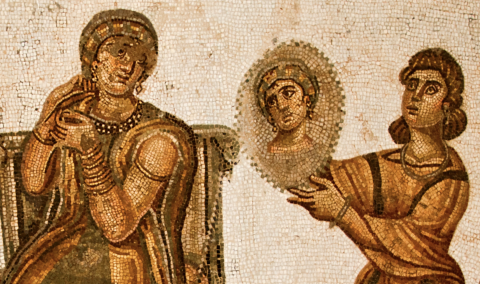
|
Blog: A Roundup of Reports, Reactions, and Reflections After the SCS Annual Meeting
It has now been a month since the SCS-AIA annual meeting in San Diego, and many have written evocative, emotional, and important pieces about the racist events that occurred there. Instead of posting each separately on our social media or blog, I have tried to compile as many as I could in this post.
In their own words: Dan-el Padilla Peralta, “Some thoughts on AIA-SCS 2019,” Medium (January 7, 2019). ----- " Read more … |
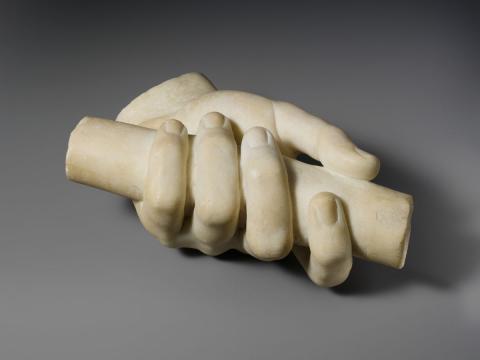
|
Blog: A Guide to Pitching Your Book at a Conference
The following post is meant as a impromptu guide to pitching your monograph or edited volume focused on the ancient Mediterranean to an editor at the national conference of the SCS-AIA in San Diego. The catalyst for its formation is a Read more … |
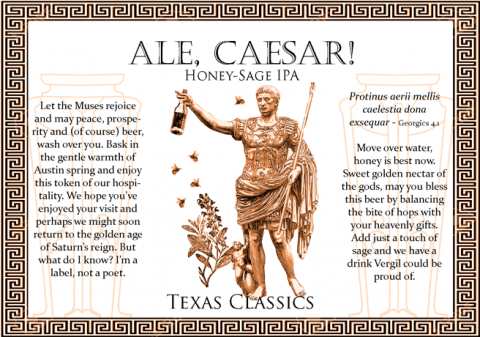
|
Blog: Ale Caesar! Classical Reception and the Art of the Beer Label
Classical reception comes in many forms—including beer. Just ask Colin MacCormack, a Classics graduate student at the University of Texas-Austin. For the past few years, he has been brewing his own beer with classically inspired names and labels that he makes himself. He often serves these brews at annual lectures or at department functions. I can attest firsthand to the fact that MacCormack’s beer is delicious, but what stuck with me longer than either his hoppy Rye Pale Ale or his Ale Caesar! Honey-Sage IPA was the time he put into his beer labels. It got me thinking not only about the way that the ancient world is reshaped in popular culture, but what role Classicists can and should have in shaping that reformulation.
|


.png)